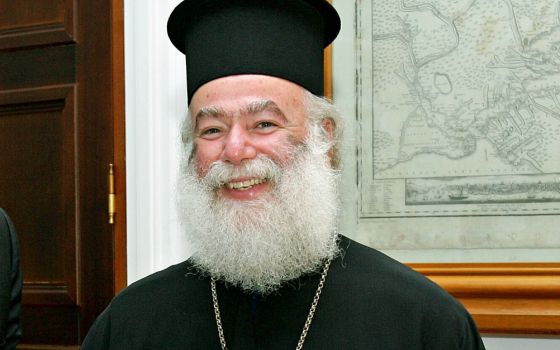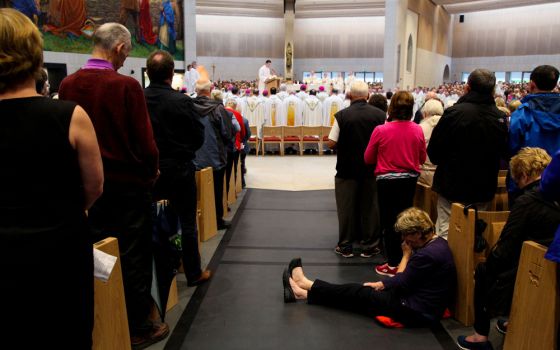Catholics are well-acquainted with -- and NCR readers seem especially attuned to -- the adage that "the church thinks in centuries." The utterance is usually greeted with a knowing nod, eye-rolling or a sigh, depending on the topic at hand, because the usually unspoken understanding is "so don't expect anything to change in your lifetime."
Pope Francis' appointment Aug. 2 of the Study Commission on the Women's Diaconate stood that adage on its head. Francis created the commission, he said, "after intense prayer and mature reflection," but the idea was only presented to him in May.
Less than three months to put a papal commission together? That has to be a record. Let's hope it is a sign that Pope Francis is coming to a clearer understanding about the urgency with which the church must act to fully include women in all aspects of its life.
How this commission came about is telling. The challenge to create the commission was presented to Francis by the International Union Superiors General, the leadership organization for the world's women religious communities. The organization's leaders specifically asked not for a papal address but for a dialogue. They asked to bring a series of questions to Francis and have him respond. (They had several pointed questions, but in media coverage of the women deacons question, the others got lost.)
NCR's Vatican correspondent Joshua McElwee was one of only three reporters in the audience hall when Francis said he would think about appointing a commission to study including women in the diaconate. The breaking news caused quite a stir internationally, so much so that the Vatican was compelled to comment on it.
How much influence media coverage might have had on the appointment of this committee, we cannot say, but it does make one wonder if we would have a commission today if media had not reported this news in May. We certainly would not have had a commission if the women religious leaders had not asked for it.
All this points to the fragility of the road to progress in the Catholic church.
In Evangelii Gaudium, the first teaching document of his pontificate, Francis wrote in a section labeled "Other ecclesial challenges" that "we need to create still broader opportunities for a more incisive female presence in the Church" and that "demands that the legitimate rights of women be respected, based on the firm conviction that men and women are equal in dignity, present the Church with profound and challenging questions which cannot be lightly evaded."
But the very next sentence says, "The reservation of the priesthood to males ... is not a question open to discussion." It's as if Francis is inviting women into the room, but immediately shuffling them behind a rope line.
He understands the challenge, and we would hope that he is beginning to understand that he too -- as the embodiment of the patriarchal, hierarchical structures of the church -- is part of the evasion. Some would say part of the oppression.
The outcome of this commission to study women in the diaconate "in the earliest times of the church" is not a forgone conclusion. The commission is balanced with women and men, cleric and lay, but it is also balanced theologically.
NCR is especially glad to see that Hofstra University scholar-in-residence Phyllis Zagano, one of the foremost experts on the diaconate and an NCR columnist, is on the commission. Zagano's belief that women should be included in the office of deacon is well-known and reflects this newspaper's editorial stance, namely, that the church needs to ordain women and we can't wait centuries or decades for this to happen.
So today, let us thank the sisters for asking the question and celebrate that Francis has given the church the opportunity to discuss it seriously.

